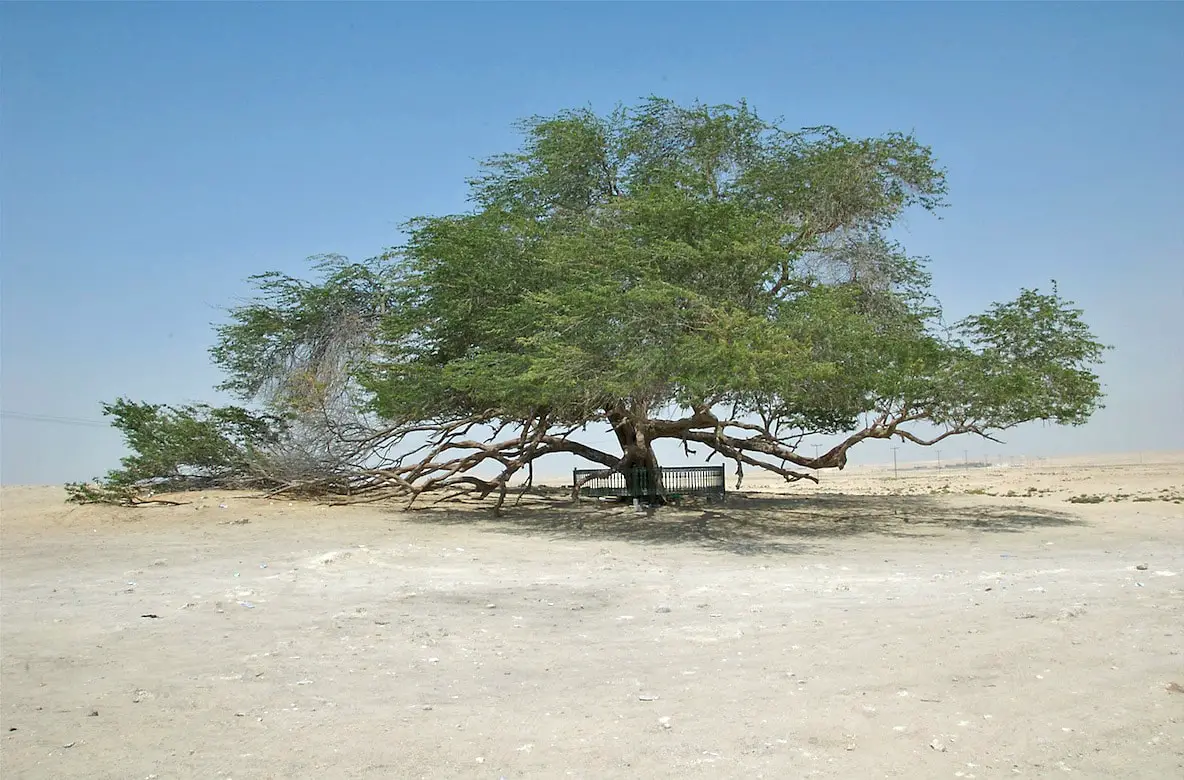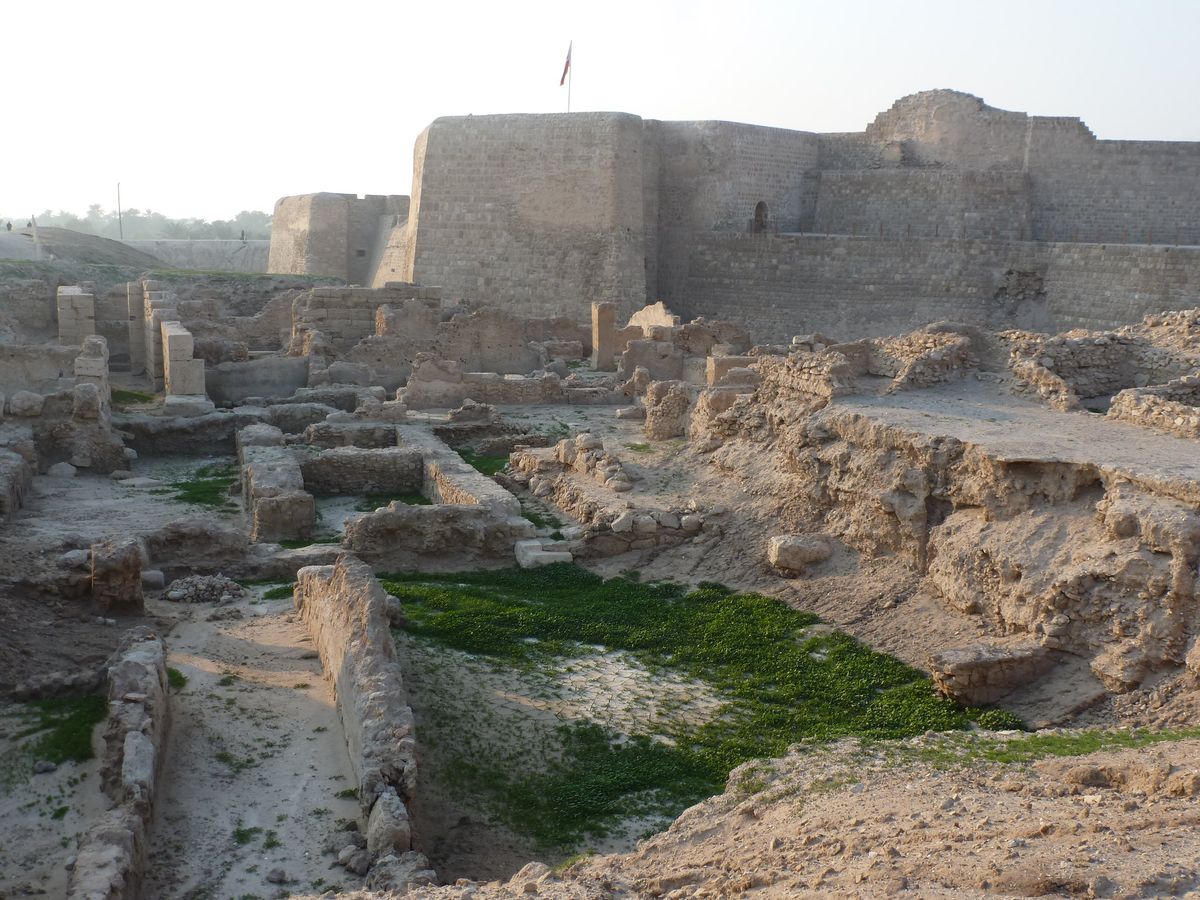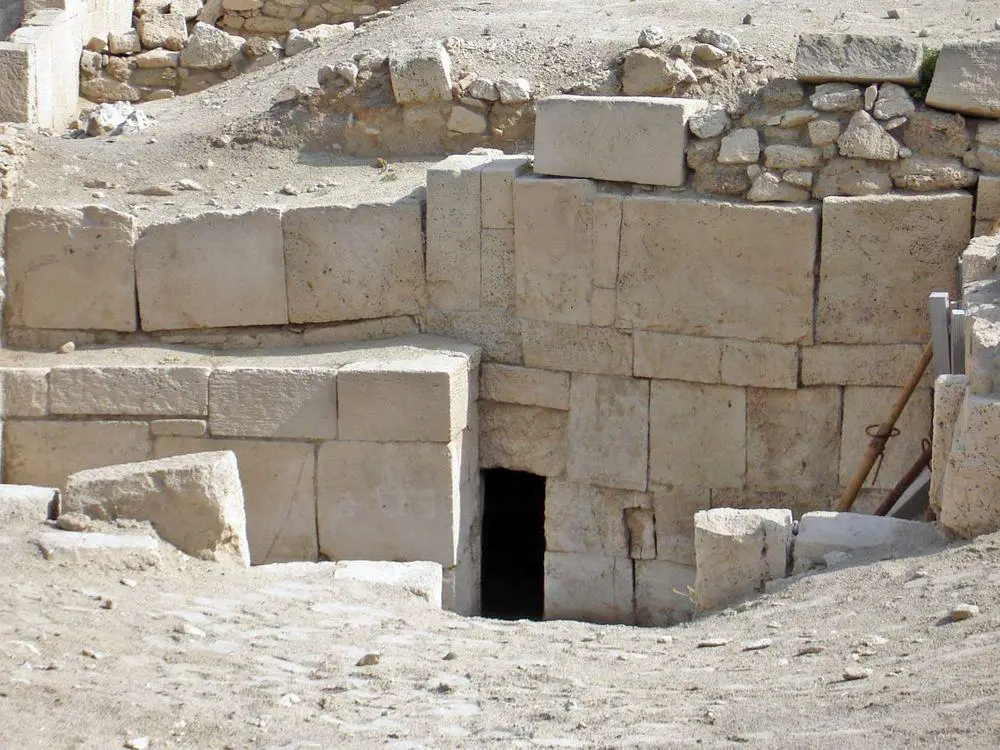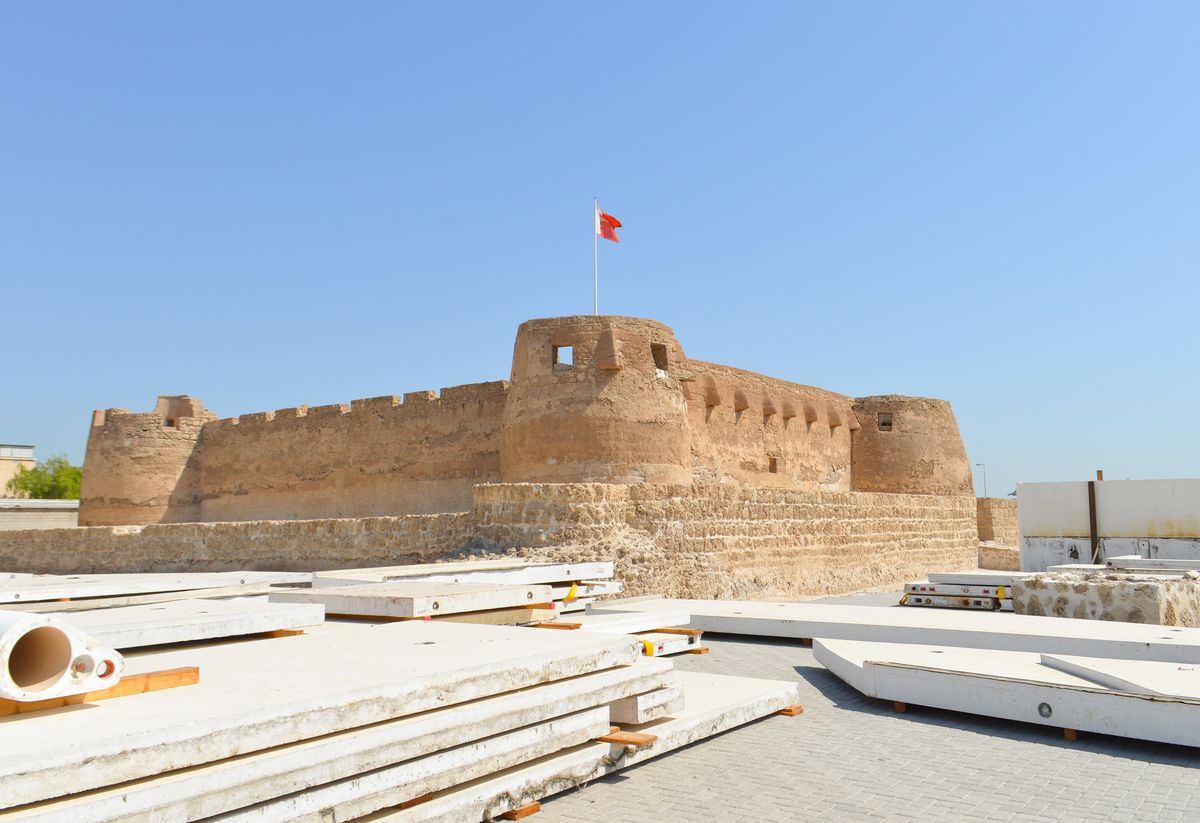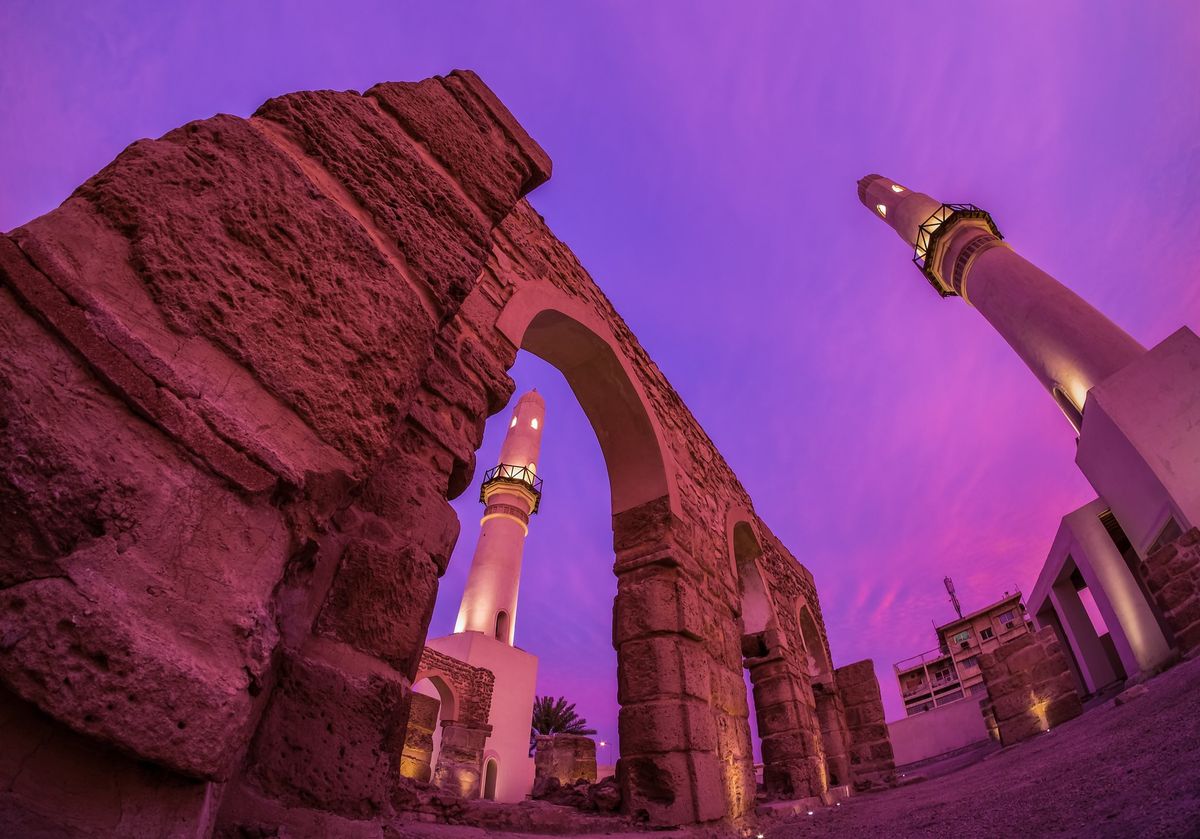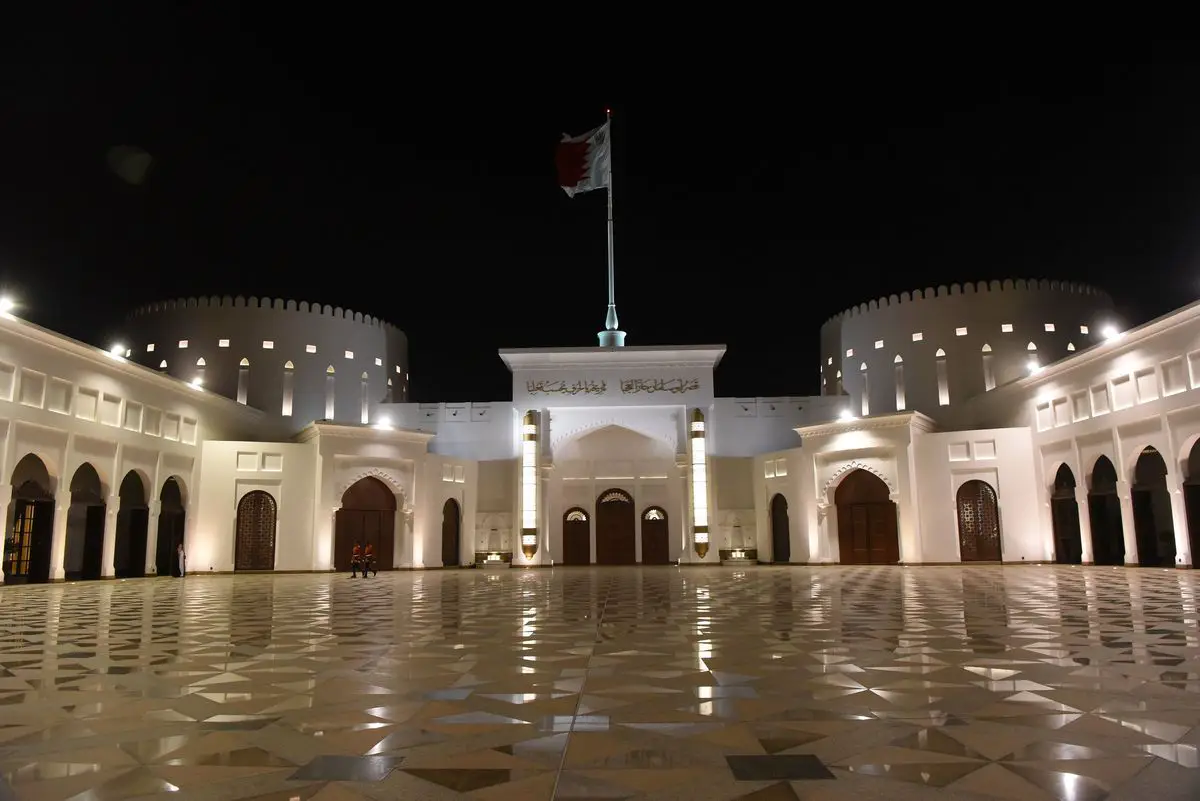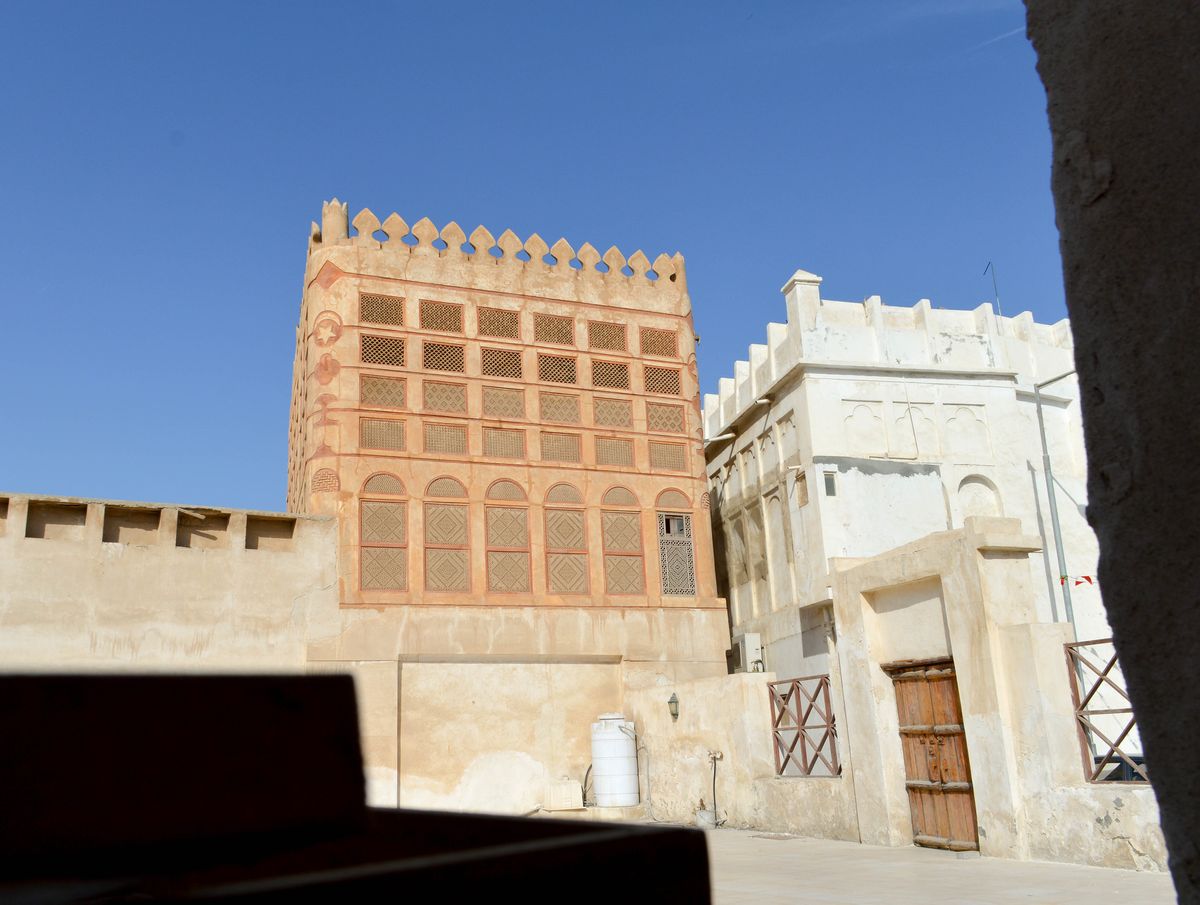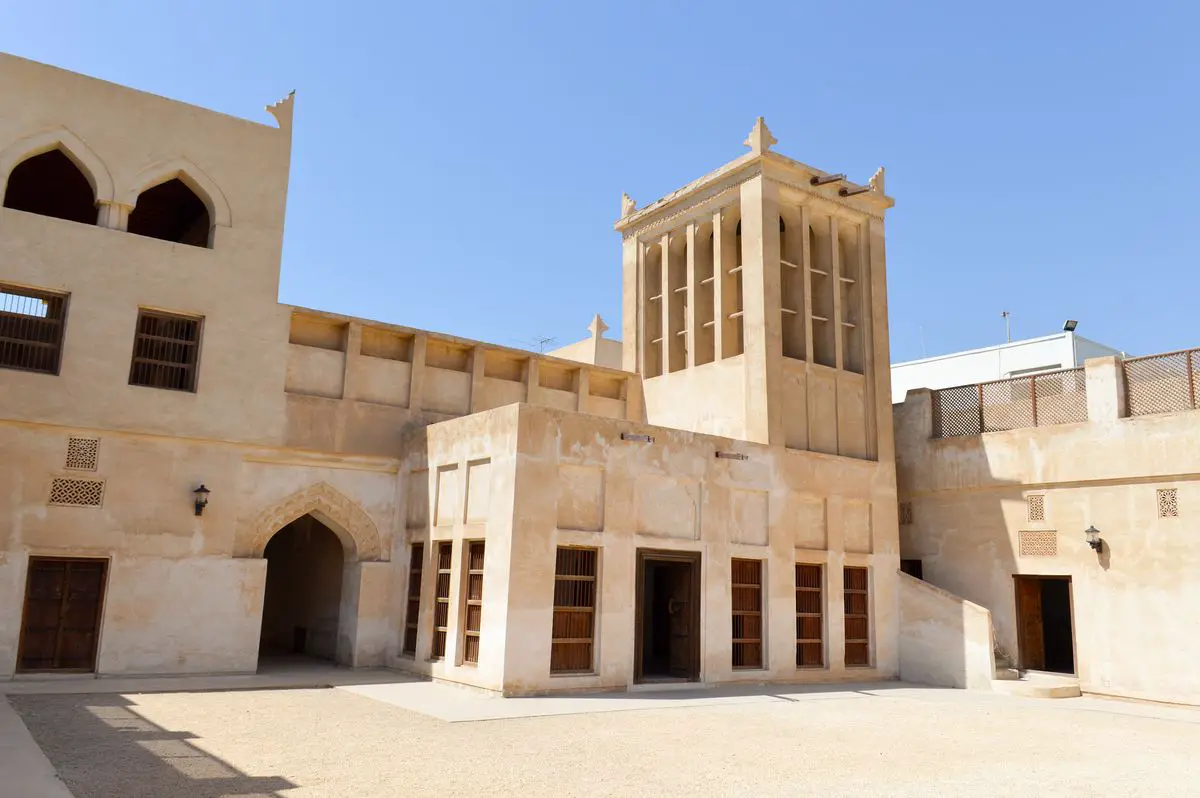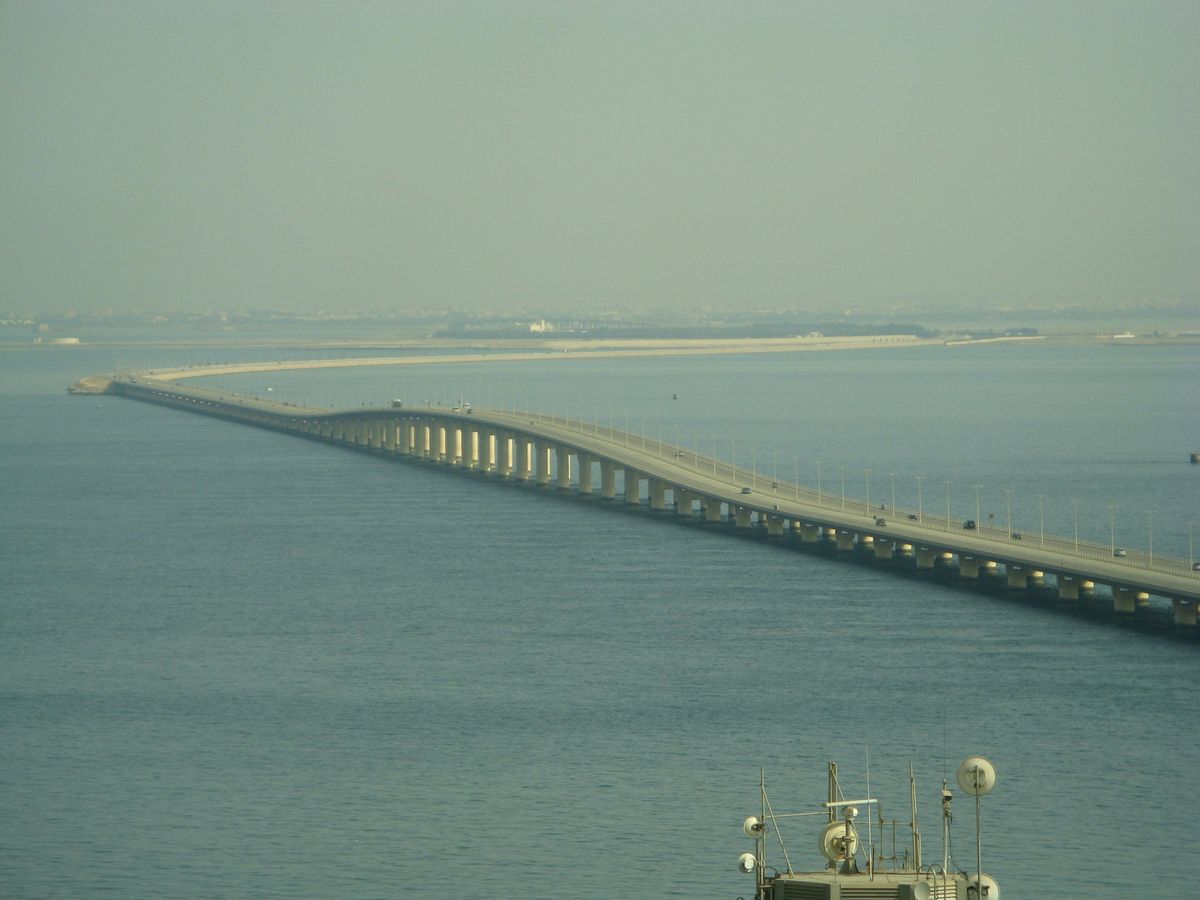Wondermondo 🢖 World 🢖 Wonders of Asia 🢖 Wonders of Bahrain
Territory
Wonders of Bahrain
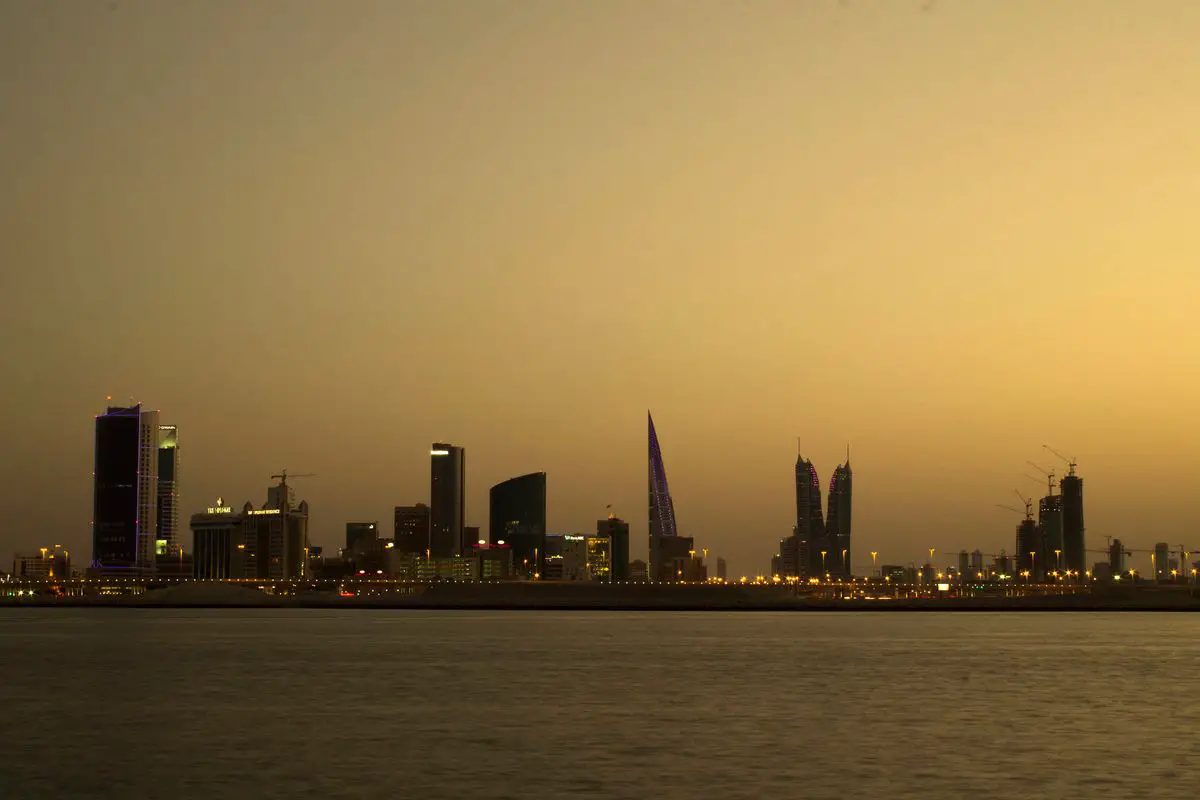
 Highlights
Highlights
The most surprising wonders of Bahrain – a small island country – are the monuments left by a Dilmun culture – prehistoric or ancient culture which sometimes is seen as a separate civilization.
This culture flourished around 3200 – 1600 BC and has left some of the largest necropolises (such as Hamad and A’ali) in the world with some 170,000 graves. It is well possible that people from far away were buried here. Unfortunately this unique heritage is endangered – covered with city.
Today Bahrain is a fast developing country with very impressive construction projects – such as Bahrain World Trade Center.
Map with the described wonders
If you see this after your page is loaded completely, leafletJS files are missing.
 Top 19 wonders of Bahrain
Top 19 wonders of Bahrain
Biological wonders
Tree of Life
Southern (Bahrain)
Approximately 400 years old mesquite (Prosopis cineraria) growing in a place that is devoid of water.
Archaeological wonders
Qal’at al-Bahrain (Bahrain Fort)
Capital
The former center of the Dilmun civilization. Artificial mound with an impressive fort on it. The 12 m high mound consists of 7 stratified layers and was created by constant habitation from 2300 BC to the 18th century. This area (approximately 15 ha) was fortified since ancient times. The Portuguese fort was built in the 16th century.
Hamad (Karszakkan) burial mounds, A’ali burial mounds, and other sites
Northern (Bahrain)
Very impressive sets of many thousands of burial mounds – tumulus. Burials have been shaped by the people of the Dilmun civilization and other cultures. There are 9 more burial fields.
Diraz
Northern (Bahrain)
An ancient settlement, temple, and fortified Umm Al Sajoor spring of the Dilmun civilization. Spring was filled with land in the 7th century AD by the Ummayad caliph – then it was cleaned again by the villagers.
A’ali East Burial Mound Field
Northern (Bahrain)
Enormous field with 4,669 mounds – burials from the Early Dilmun period, between 2050 and 1750 BCE.
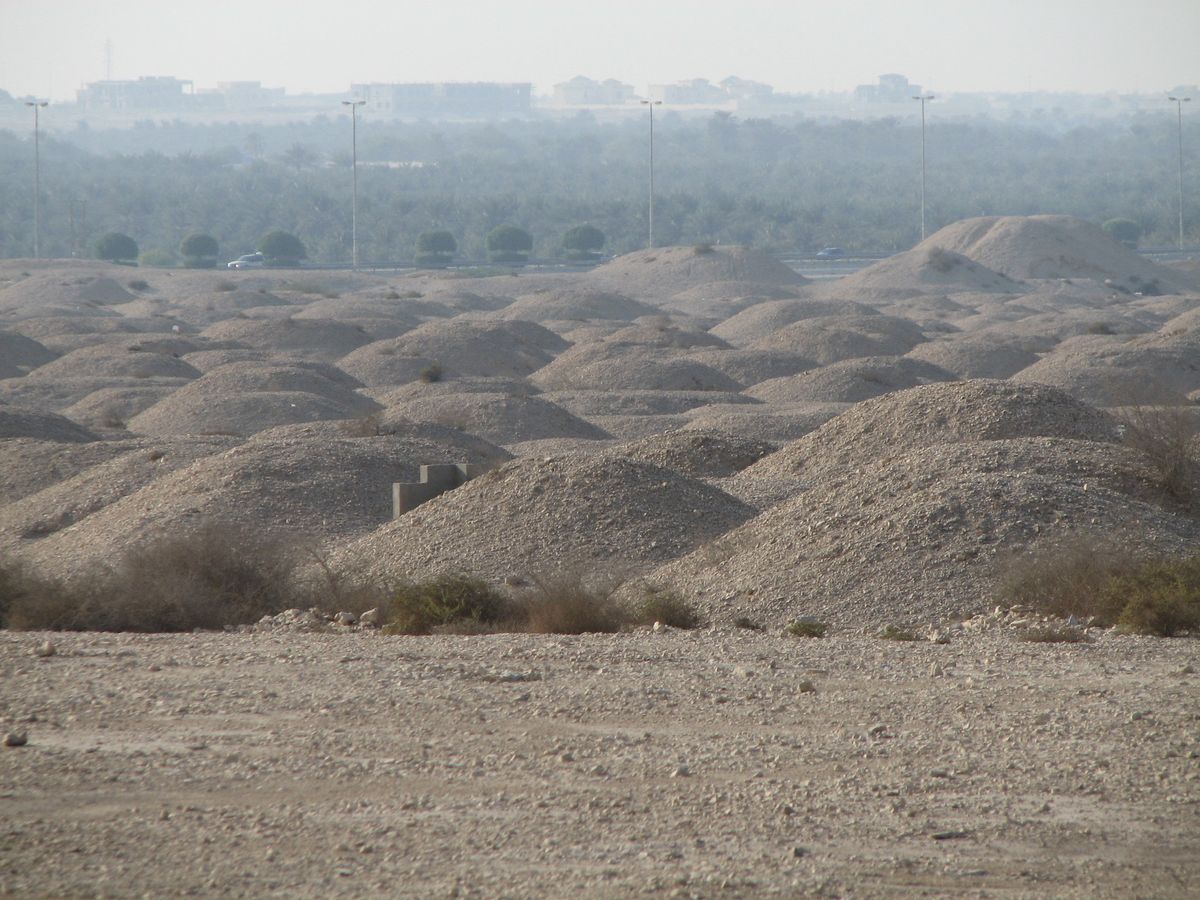
Saar
Northern (Bahrain)
Ruins of the prehistoric town of Dilmun civilization from the Bronze Age (around 2000 BC), area – approximately 15 ha. Research has provided some insight into this little-known civilization.
A’ali West Burial Mound Field
Northern (Bahrain)
A group of 723 prehistoric burial mounds that were made in the Early Dilmun Period. Six of the mounds have ring walls around them.
Al-Hajar burial complex
Northern (Bahrain)
A group of more than 150 subterranean tombs cut in rock and covered with capstones.
Jannusan burial mounds (Royal Mounds)
Northern (Bahrain)
Eight enormous burial mounds from the Bronze Age, more than 10 m high.
Barbar Temples
Northern (Bahrain)
Three temples of the Dilmun civilization, built atop each other. The first one was built around 3000 BC, the second – around 2500 BC, and the third – sometimes between 2100 – 2000 BC. Temple had two altars and a natural spring.
Architecture wonders
Bahrain World Trade Center
Capital
240 m tall twin skyscrapers, the first in the world with integrated wind turbines. This 50-floor-high building was built in 2008.
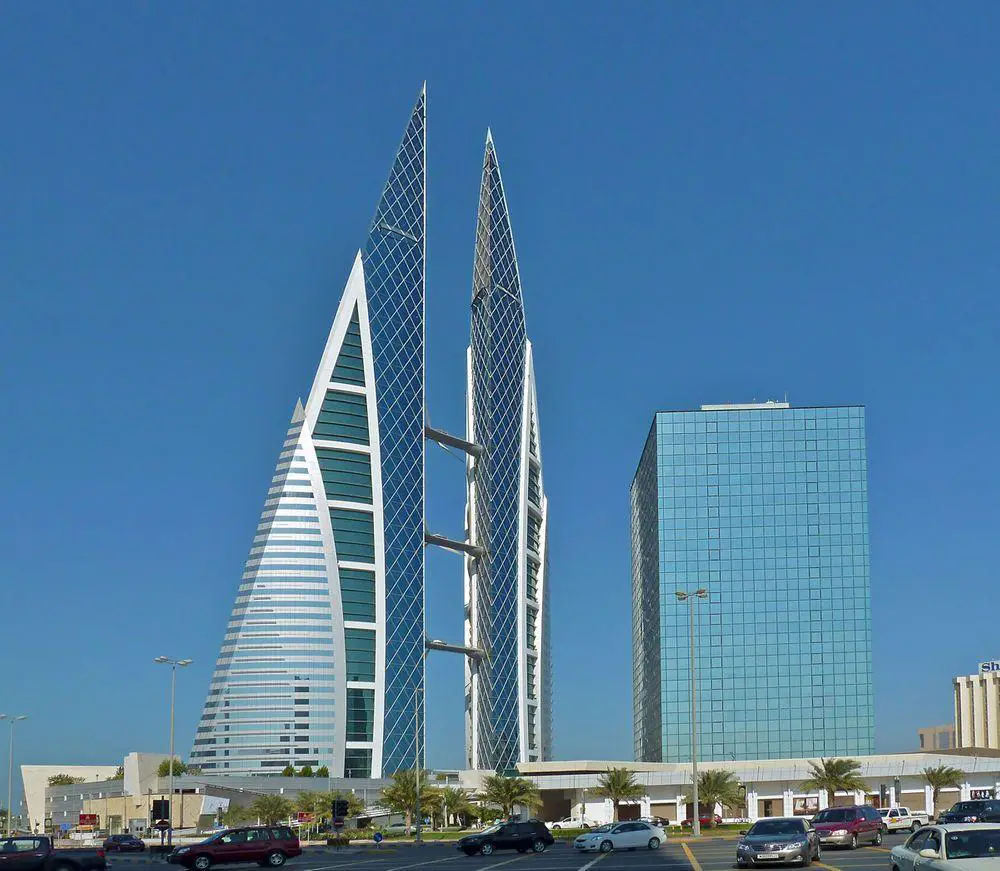
Al Fateh Grand Mosque
Capital
One of the largest mosques in the world that can accommodate more than 7,000 worshippers at a time. Built in 1988. A significant detail is the largest fiberglass dome (diameter – 24 m) in the world.
Arad Fort
Muharraq
This fort was built by Arabs in the 15th century. Compact structure with four cylindrical towers on corners.
Riffa Fort
Southern (Bahrain)
Persian-built fort from the 17th century. It was converted into a palace in the 18th century.
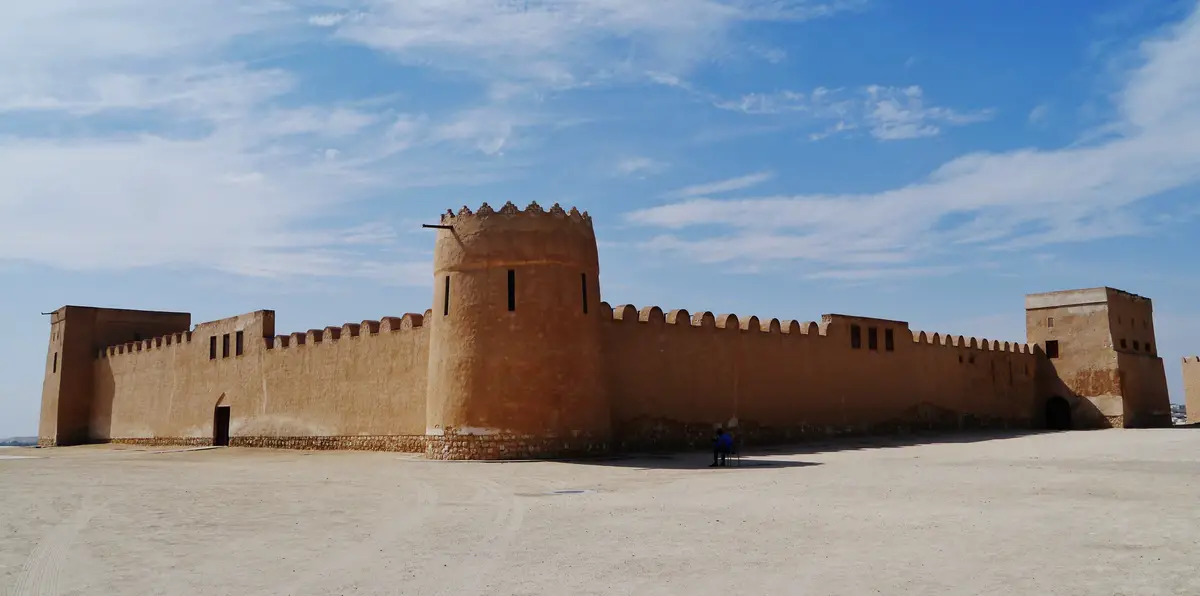
Khamis Mosque
Capital
The first mosque in Bahrain. It is believed that the foundation of this building was laid in 692 AD, the current building is from the 11th century and has been rebuilt many times.
Al-Sakhir Palace
Southern (Bahrain)
An imposing palace complex that was built in the desert in 1870 – 1901.
Siyadi House
Muharraq
A 19th-century city house with detailed ornamentation and finely carved doors.
Isa Bin Ali House
Muharraq
One of the best examples of historical Bahraini architecture, the house of Shaikh Isa Bin Ali with a massive wind tower.
 Recommended books
Recommended books
Culture Shock! Bahrain: A Survival Guide to Customs and Etiquette
Information and background for travelers and expatriates include a brief history and description of Bahrain, along with facts about the food, language, culture, and pastimes to help the “shocked” function in society, business, and residence.
Looking for Dilmun
This book was digitized and reprinted from the collections of the University of California Libraries. It was produced from digital images created through the libraries mass digitization efforts. The digital images were cleaned and prepared for printing through automated processes. Despite the cleaning process, occasional flaws may still be present that were part of the original work itself, or introduced during digitization.

